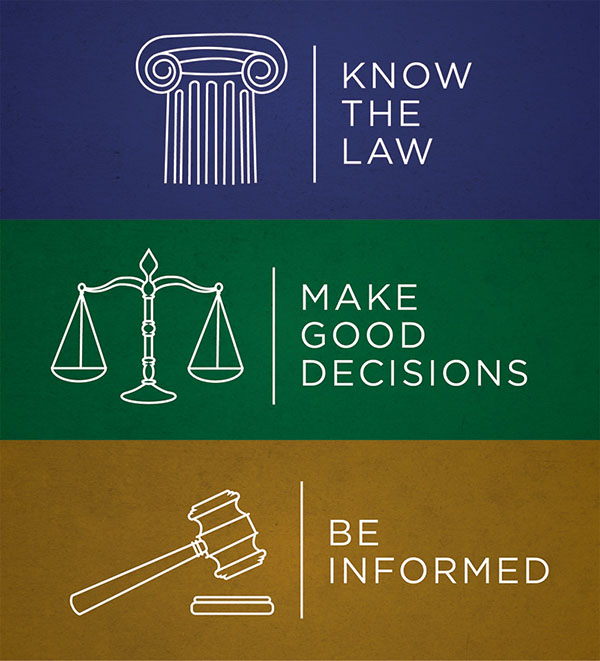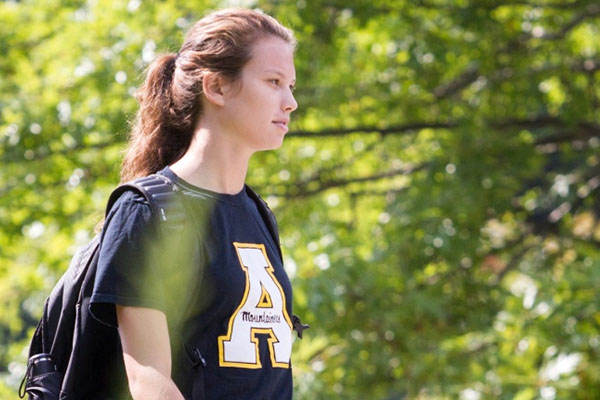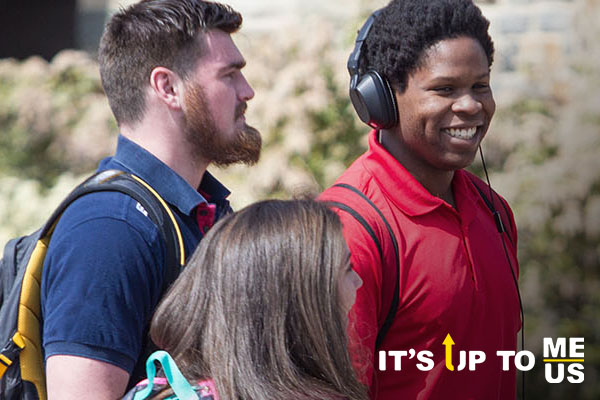Creating an informed, connected and engaged off-campus student community
Your source for wellness, health and safety information, resources and support for the campus community
Considering moving off campus? It can be trickier than you think. In this edition of AppX, Laurie speaks with Director of the Student Legal Clinic and Off-Campus Community Relations Karla Rusch who can guide you through the process and give you the tools you need you help you along the way.
Transcript
Laurie: Hey y’all, welcome back to AppX, this is Laurie Pope. In the past these podcasts have been all about preparing you for your time at Appalachian. What to wear, where to eat, how to survive dorm life. But what about after the first year or two, when you’re ready to branch out, leave the dorms, and live on your own, off-campus? I have lived in four different properties and rented from four different landlords and rental companies. And let me tell you, it’s not always a cake walk. Cue Karla Rusch, who I’ve brought on the show today to talk about how to make living off-campus a positive experience.
Karla Rusch is the director of the student legal clinic and off-campus community relations. Karla helps empower students to make good choices on their own when it comes to living off-campus, and can also help students if they find themselves in a bind. She hosts seminars on everything we’re going to talk about today and more, as well as one-on-one legal clinics. I’ll let her tell you a little more about those later.
Karla, thank you for coming in to talk to me today.
Karla: Well thank you for having me.
Laurie: What are some things right off the bat that you think I should know?
Karla: Well, I would say you should plan ahead so that you don’t feel rushed into making a commitment to housing before you’ve had a chance to do all your research and really look around. That’s one of the main messages that I emphasise, is to be an informed consumer--and to be an informed consumer you need to do some work. So that involves doing some online research, it involves actually going out and hitting the streets, making sure you look carefully at the place that you may be living in, and asking questions, gathering more information, and then making sure that you read and understand the lease.
Laurie: What are the biggest issues that you encounter that students have?
Karla: One of the biggest issues, somewhat surprisingly, is that they have problems with their roommates. So this is part of planning ahead and really thinking things through before you commit--who are you going to be living with? Because if you and your roommate haven’t really talked about what you want in a living situation to may have some serious disagreements that can really impact what that experience is going to be like. And, also, there can be financial implications if the roommate does not pay his or her share of the rent or other bills/utilities, that can leave the roommate who is paying and is being responsible in a really difficult position. Because if you’ve signed a joint lease, you both can be held fully responsible for the rent on that apartment or rental house. Also problems with conditions in the rental units. Some of the things that are common are mold, leaks, leaks from the outside like a roof leak or problems with plumbing, or the water supply, infestations which can include fleas, rodents, snakes, bees--this comes up fairly often actually. And so some of these things you’re not going to see right away when you go in to look at an apartment. It is very important that you try to look at the actual apartment you will be living in, but when you do go to look at that apartment, you need to look carefully and you need to ask questions. And those questions are going to be based on what’s important to you. So thinking ahead of time about what type of environment you want to be living in is going to guide your questions.
Laurie (voiceover): I would like to stop and add something here when it comes to research. If you’re able to go into the exact unit or place you’ll be living in and talk to the current tenant, this is where you’re going to get a lot of your real answers. I’ve learned so much about the place that I’m trying to move into by talking to the person that lives there right now, while the landlord was showing my other roommates something in the kitchen. And it’s not that landlords are hiding anything from you necessarily, but if you’re talking to someone who’s living in the unit how you want to live in the unit, that’s your age, that’s just, you know, having a similar experience to what you’re planning on doing, you’re going to get a lot of answers to questions you may not have even thought to ask, or that landlords may not know simply because they just don’t live in the unit. So that’s something to think about. Back to Karla.
Laurie: So, when it comes to the lease--you say a lot of people will bring the leases before they’re signed to you. So what are some of the things that could come up in that conversation that you have with the students?
Karla: One of the things that comes up is sometimes beyond the rent and the security deposit and the potential for a late fee, all of which is specified in the North Carolina general statutes--those things can be included in the lease and there can be some parameters for what the amounts can be and what can be charged. A landlord may include additional fees, and it’s important for us to recognize these other fees are part of their lease and that may add up to costing a little more, and possibly be something that they want to try to negotiate with the landlord or want to shop around more if those fees seem excessive to them. There are also fees attached to violating the landlord’s rules and regulations and you need to realize that these are all enforceable and probably will be enforced by the landlords, so, make sure these are things that you can live with and feel comfortable with.
Laurie: Now relating to that--fun anecdote. My sophomore year I lived in a place, and at the end of our lease, we had found another place to live, but the landlord did not give us back our deposit and said, “you’re lucky I’m not charging you more.” And that was the end of it. Now looking back, I wish that we had come to you, and kind of, you know, been able to further that conversation. So what can tenants do to protect themselves against damage fees and landlords just claiming “you’re not getting your deposit back”?
Karla: And that does come up quite often. That is an issue that I talk to quite a few students about every year. First, on the front end, again, documenting is very helpful. The law spells out pretty clearly what a landlord can use a security deposit for. It is meant to be fully refunded if you’ve paid all of your rent and you’ve not damaged the apartment. And so this is an area where I do help students advocate for themselves by writing a formal letter and then you can actually sue your landlord in small claims court, which is accessible. It’s not very expensive to initiate a lawsuit in small claims court, and it’s something you can do without a lawyer because the clerk of court has forms. So this is an area where I have seen students have success, when they have persisted--not always--but there is a pretty clear path and the law is pretty clear. In terms of the security deposit, it doesn’t mean that there aren’t going to be conflicts and some students will not ever get their security deposits back, but I would definitely encourage students to persist in trying to get their security deposit back.
Laurie: I wish I had known then that there was actually probably a decent chance that we could have gotten some of that money back.
Laurie (voiceover): So far, a lot of this talk is really demonizing for a lot of the landlord population in Boone. It’s really not as scary as I’m making it seem. For example, my landlord is Stephen Phillips, and he is fantastic. He had my apartment cleaned and updated before I even tried to move in, and if there’s ever any issues, someone is there that day to address it. He makes sure our sidewalks and stairs are salted if there’s any chance of snow or ice, which landlords do not have to do. In fact they are not obligated at all to make sure that parking lots are plowed, let alone salting stairs. Stephen is by far the best landlord that I’ve ever had. But what if you find yourself in a sticky situation with a less-than-cooperative landlord?
Laurie: Do you have any advice for those who may have found themselves in the middle of a messy lease situation? How can students kind of advocate for themselves against that?
Karla: One thing is it’s very important to document what’s going on for yourself so that you are accurate and can tell your story well and be a good advocate for yourself. So let’s say it’s a problem with conditions. Take pictures, write things down, put requests for repairs to the landlord in writing and keep a copy of what you’ve given to the landlord. So you’ve really got a good record of what’s happened because if the problem isn’t fixed, it escalates in some way, it’s really useful to be able to document what’s occurred already in timeframes. I talk to students about how to communicate with their landlords effectively and sometimes it’s useful to write a more formal letter. Putting that in writing in a certain format may help the landlord take you more seriously and realize that you’ve done some research and that you know what you’re talking about.
Students do not always realize that a lease is a binding contract; it’s pretty much always going to be for a full year, and if you encounter some kind of difficulty, that leads you to want to move out of that place, it is not easy to accomplish that without financial liability. There is not some magic step you take to break a lease. It’s a binding contract, and so that can create problems for students if they have not fully realized how the lease works.
Laurie (voiceover): For any parents that might be listening, this is for you.
Laurie: And as a parent of a student that is looking to live off-campus, what do you think is the best advice to give them?
Karla: Well, parents may want to let their students know about the community education presentations that I do for students which are called “Housing Options: Find Your Match” and those are one-hour presentations that I offer in conjunction with University Housing because we’re starting from the premise that some students may not know for sure if they want to live off-campus or if they want to re-apply for on-campus housing. So again, the message is keep your options open. But those are one-hour presentations and in terms of off-campus housing, I talk to students about how to find housing and then how to find housing that is the best fit for them. Which again means they’ve got to think about what they want and be active in seeking out what is going to be a good fit for them in terms of housing.
So parents may want to have their students attend one of these programs and I think that they can tell their students they may want to review their leases with me which they can do individually through the student legal clinic. But I guess if their was an overall message, beyond getting help through our office, allow the students to take their time, look around, look carefully, and really think about what they are getting into before they commit.
Laurie: So, about these presentations you have. Where could we tell the students to find when and where they are?
Karla: We’re putting out a fair amount of information through University Housing, so University Housing is promoting the programs to students living in the residence halls. There are also signs in the student union on the electronic signboards, but the definitive place would be the off-campus community relations website, which is offcampus.appstate.edu.
Laurie: If we were to simplify the steps that you think students need to take to have an easy transition to off-campus housing--no issues--what would you say those would be and how would you go about presenting them?
Karla: I think the steps would be: do your research, think ahead, plan ahead, don’t be rushed, inspect the rental unit that you may be living in carefully, and go beyond your own inspection to ask questions, do some additional research that digs a little deeper, and then make sure to read and understand the lease.
I do have a document I created that I have out that is a checklist that will lead students through the different issues that I touch on in the presentation but in a very simple format just to remind people to be aware of all the issues. So that checklist is something that might be useful even if you haven’t gone to a presentation. And I’m going to make sure that that’s available on my website--and that’s the offcampus.appstate.edu website. And there is also a website for the student legal clinic which is legalclinic.appstate.edu.
Laurie: Awesome. A lot of apartment complexes have been going up in past years, and more are going to be built starting in the next year. Do you feel that there is a bit of a shift from the kind of tenant/landlord power climate?
Karla: I think there has been in the past few years. Going back, quite a number of years, there was always at least a perceived housing shortage in Boone and we can think of some of these years when that was kind of advertised in different ways. It was in the paper, there wasn’t enough housing, the University didn’t have enough housing, they were putting people in hotels--sort of these housing crises that occurred some fall semesters. That really has changed in the last couple of years because there has been quite a bit of new rental housing build, especially particularly aimed at students, so that does provide more choices to students and more leeway for really getting what they want.
Laurie (voiceover): I spent the rest of my time with Karla talking about how the University is involved with off-campus housing.
Laurie: Could you speak to the rumor that there are University-associated off-campus living arrangements?
Karla: There is only one apartment complex that is affiliated with the University in any way and that is University Highlands. And there is a legal relationship between University Highlands and Appalachian State. The University does work with off-campus landlords and rental companies and rental management companies and that’s through my office, the Off-Campus Community Relations office. I invite rental companies to come to a meeting twice a year where we come together and there are quite a few of them that do participate regularly in this. We talk about issues that impact Appalachian State Students living off campus, and they reflect back what their issues are, so there really is an attempt that I think has been working well to build relationships with the off-campus landlords and really do that with an eye towards promoting a good experience for our students that are living off-campus.
Laurie: I want to stop here and talk to you all as not only a student, but a member of the Appalachian community. Karla is about to bring up something really important. If you’ve had this on in the background of Facebooking, I’m inviting you to fully tune back in.
Karla: But it goes just beyond just those twice a year meetings. We are really trying to bring the rental companies into a partnership with the University, particularly to work on issues that impact student safety. So there are a few things that we’ve done.
We have a program called “House Calls” where volunteers from the University go out early in the Fall semester and knock on doors and greet students and welcome them back to Boone and the University. This year we focused on providing safety information so we gave out a refrigerator magnet with information about resources related to suicide prevention, alcohol and other drug/risky use, and interpersonal violence including sexual assault--and this is all done with the cooperation and assistance from the landlords to let their tenants know that we’ll be coming, to welcome us to their properties, and we are actually training landlords on suicide prevention. The University has a grant and we’ve got a really great comprehensive program going where we are trying to train all members of the community from students to faculty to staff on how to recognize the signs and symptoms of suicide and where to go if you encounter someone who might be indicating that they’re depressed or suicidal. And so we are actually going to off-campus locations and training the landlords as well. And we’ve just started that but we’ve already had some good participation. The landlords have really welcomed getting this information because they are, in a way, on the front lines of working with students who may be troubled in different ways. So it’s been really encouraging to see that they are willing to put some time in to get this important safety information.
Laurie (voiceover): This is huge. I don’t think that there is any question that this has been a rough year for the Appalachian family. And although the numbers aren’t actually too different than other years, it’s hit the community a lot harder this year. Student safety is not a new challenge for any university. As Karla mentioned, the grant and trainings all started last school year. But the efforts and messages have always been there. The difference now is the shift from student safety being a “grown up” issue to an “everyone” issue. Our faculty, staff, parents, and landlords are getting all this training for us, the students. But now students are joining in the fight for ourselves. Research shows that peer-to-peer intervention is the most effective way to reach someone that’s in a bad place. If we can tackle student safety and mental wellness from all angles, there’s no guarantee for 100% success, but Appalachian has put the tools in our hands and I think we’d be crazy not to use them.
I’ve been here a long time. I’ll admit, when I was a freshman and a sophomore, this kind of stuff just wasn’t as important to me. If it wasn’t directly affecting me, I just wasn’t interested. I wish that someone had shook me by the shoulders and said, “This is important stuff! Pay attention!” So this is me, as a graduating senior now, telling you not to ignore this. Okay this rant is almost over, but if any of this has piqued your interest in the least, please check out appcares.appstate.edu. Back to Karla.
Karla: It’s a good relationship. There are a lot of students living off campus, there are about 12,000 students so obviously Appalachian wants to be involved in trying to help those students as much as possible and this is part of that.
Laurie: Well, there you go. You probably just learned more than you thought you would ever need to know about living off-campus in Boone. College is a time to branch out and be on your own. But don’t forget that your parents and your school are here to help. Use resources that Karla gave you. Talk to your landlord.
If you have any more questions about off-campus housing, or anything regarding life at App, feel free to tweet me at @HeyAppX.
A very special thank you to legal genius Karla Rusch for being on this addition of AppX. Until next time, this is Laurie Pope.
What do you think?
Share your feedback on this story.
Creating an informed, connected and engaged off-campus student community
Your source for wellness, health and safety information, resources and support for the campus community
About Appalachian State University
As a premier public institution, Appalachian State University prepares students to lead purposeful lives. App State is one of 17 campuses in the University of North Carolina System, with a national reputation for innovative teaching and opening access to a high-quality, cost-effective education. The university enrolls more than 21,000 students, has a low student-to-faculty ratio and offers more than 150 undergraduate and 80 graduate majors at its Boone and Hickory campuses and through App State Online. Learn more at https://www.appstate.edu.















